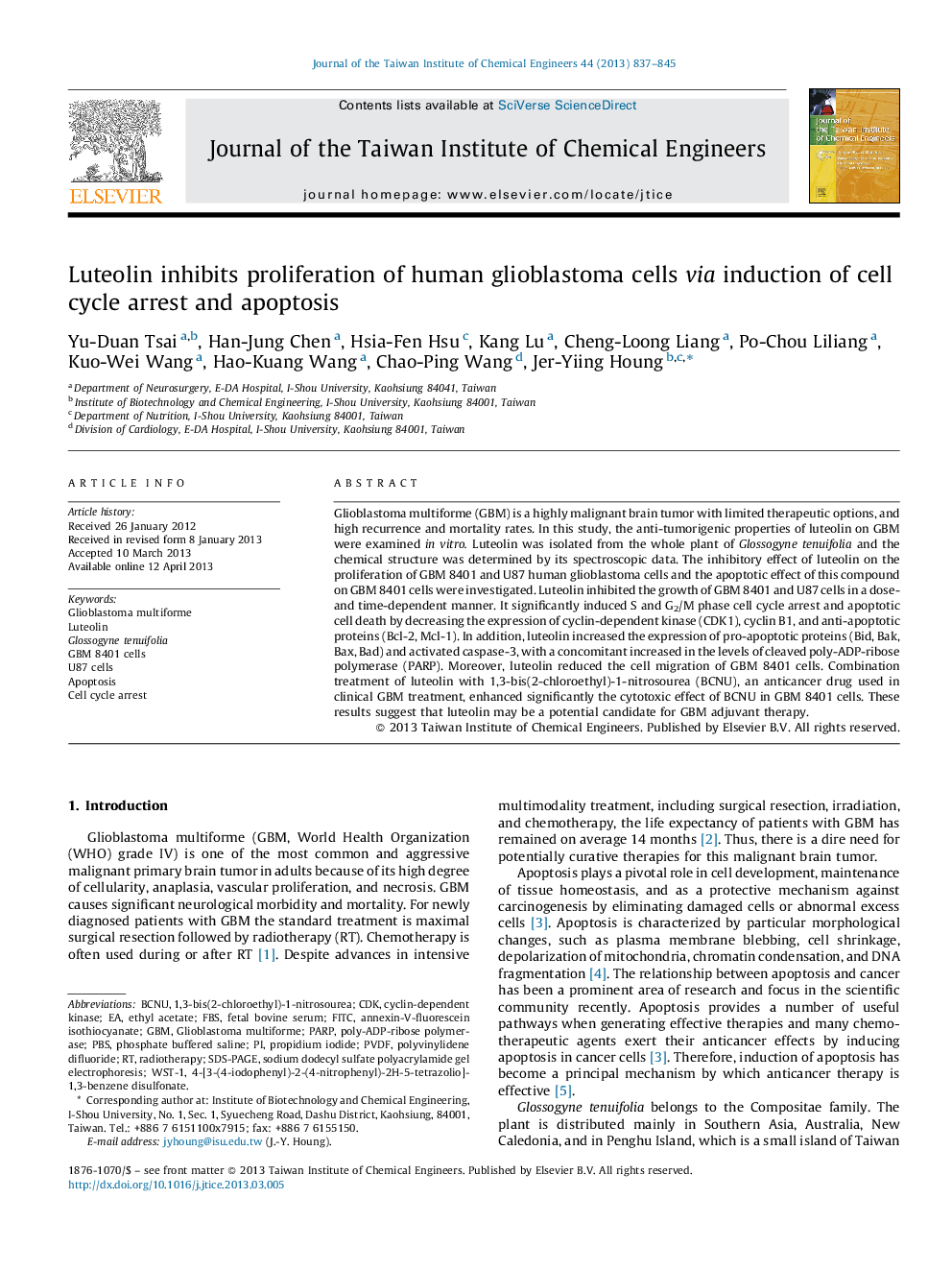| Article ID | Journal | Published Year | Pages | File Type |
|---|---|---|---|---|
| 691032 | Journal of the Taiwan Institute of Chemical Engineers | 2013 | 9 Pages |
•Luteolin inhibits proliferation of GBM 8401 and U87 cells.•Luteolin was isolated from the whole plant of Glossogyne tenuifolia.•The apoptotic effect of luteolin on GBM 8401 cells was investigated.•Luteolin significantly enhances the anticancer effects of BCNU in GBM 8401 cells.•Luteolin may act as a potential candidate for GBM adjuvant therapy.
Glioblastoma multiforme (GBM) is a highly malignant brain tumor with limited therapeutic options, and high recurrence and mortality rates. In this study, the anti-tumorigenic properties of luteolin on GBM were examined in vitro. Luteolin was isolated from the whole plant of Glossogyne tenuifolia and the chemical structure was determined by its spectroscopic data. The inhibitory effect of luteolin on the proliferation of GBM 8401 and U87 human glioblastoma cells and the apoptotic effect of this compound on GBM 8401 cells were investigated. Luteolin inhibited the growth of GBM 8401 and U87 cells in a dose- and time-dependent manner. It significantly induced S and G2/M phase cell cycle arrest and apoptotic cell death by decreasing the expression of cyclin-dependent kinase (CDK1), cyclin B1, and anti-apoptotic proteins (Bcl-2, Mcl-1). In addition, luteolin increased the expression of pro-apoptotic proteins (Bid, Bak, Bax, Bad) and activated caspase-3, with a concomitant increased in the levels of cleaved poly-ADP-ribose polymerase (PARP). Moreover, luteolin reduced the cell migration of GBM 8401 cells. Combination treatment of luteolin with 1,3-bis(2-chloroethyl)-1-nitrosourea (BCNU), an anticancer drug used in clinical GBM treatment, enhanced significantly the cytotoxic effect of BCNU in GBM 8401 cells. These results suggest that luteolin may be a potential candidate for GBM adjuvant therapy.
